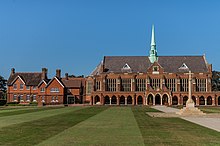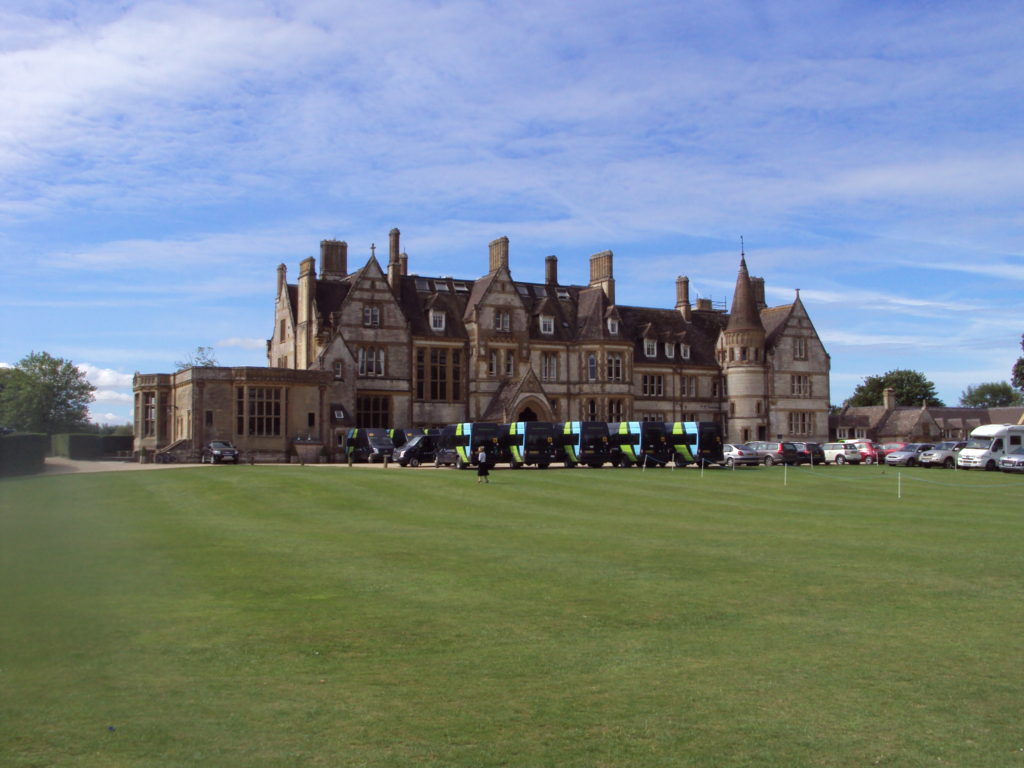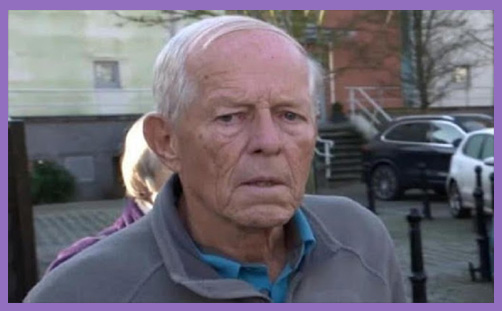
The book, Bleeding for Jesus, John Smyth and the cult of Iwerne camps (BFJ), which I received on Friday, has nothing resembling a good or tidy conclusion. There are indeed some good people scattered here and there in the narrative and these help to mitigate what is an appalling tale of cruelty, moral failure and indifference which fill the pages. The book by Andrew Graystone is one that shocks and depresses one at the same time. The only hero in the story is perhaps the author himself. Some in the story deserve our respect as innocent victims but only a small few deserve any admiration for their actions and Christian behaviour. Graystone’s narrative, in its clear simplicity, helps us to make sense of what is, much of the time, a total horror story. BFJ represents an extraordinary piece of research. The detail in it is mind blowing and, as far as one can tell, completely accurate. If there are errors, as some have already claimed, they do not detract from the main thrust of the book and its meticulous attention to detail. Graystone has evidently spoken to hundreds of people and mastered thousands of pages of documents. The work he has done is part of a wider but necessary movement to bring light into murky areas of Church safeguarding failures from the past.
The outline of the story of John Smyth and his nefarious behaviour towards a group of young privileged public-school boys in England is already well known. Graystone manages to provide a lot more detail through his patient questioning of witnesses who witnessed the events of 40 years ago and others more recent. The book well conveys the social and theological claustrophobia which have long been a feature of the Iwerne camps. Graystone has great sympathy and understanding for the emotional deprivation felt by many of the campers, educated in privileged schools. Smyth also well understood this vulnerability. This could lead to a desperate need in some boys, sundered apart from families at an early age, to have an understanding adult in their lives. Smyth offered himself to fit a paternal role for some of them. Using this position of proxy father, Smyth persuaded over 20 boys in England to undergo savage beatings at his home in Winchester. Somehow the pain of these beatings was thought to bring the recipient closer to a Father God. We are given a glimpse of a fundamentalist theology which could be so easily twisted to become toxic and suit Smyth’s nefarious purposes. The Iwerne theology taught to generations of its alumni, is also revealed to be, in fact, remarkably shallow and superficial.
Much of the brand-new information in the book, apart from the extensive filling in of many gaps of Smyth’s association with Iwerne camps in the 70s and early 80s, is the African material. Graystone was enabled to travel to Zimbabwe and South Africa in pursuit of his research about Smyth and he explains the hitherto little-known story of Smyth’s nefarious activities with boys’ camps under the auspices of his missionary society, Zambesi Ministries. It is in Africa that we find a number of individuals who seem to have stood up to Smyth and tried to resist his influence and power. There was the lawyer David Coltart and a group of ministers in Bulawayo who openly challenged his violence towards the boys in the camps in the name of discipline. This took place in 1995. Smyth’s connections with funding institutions in Britain and Zimbabwean politicians meant that every time the law seemed finally to be catching up on him, some intervention or legal trick rescued him. Even though he survived each of these brushes with the legal system, he eventually realised that he would need to move on again. This he did in the early part of 2001 when he and his family moved to South Africa.
The saddest part of the book is the complete failure of the safeguarding establishment in England to tackle the problem of Smyth when information began to leak out about him in 2013. Nobody wanted to hear the testimony of ‘Graham’, one of Smyth’s victims from Winchester College. He first disclosed his abuse by Smyth in March 2012 to his local Vicar in Cambridge, Alasdair Paine. It took 22 months before he was enabled to see a trained therapist in January 2014. Meanwhile the whole country had become sensitised to the issue of historic sexual abuse of the young after the emergence of the Savile scandal in 2012. It is quite clear from Graystone’s research that there were dozens of people in the Iwerne network, including Paine, who were potentially able to confirm the credibility of Graham’s account. Some had been sitting on information about Smyth for the previous 30 years. Graystone’s meticulous research reveals many of the names of people in fact who knew that Smyth was still dangerous. He was a recognisable danger to any young people in Africa who crossed his path. It was also a form of racism that allowed English leaders to think that, if Smyth was in Africa, at least he was no longer able to be a threat to them or their reputations. They carefully allowed themselves not to think about these potential innocent victims of Smyth’s considerable capacity for cruel and inhuman behaviour. The Church of England and the NST have shown little interest in the African victims, and no known attempt has been made to investigate the African abuse, let alone reach out to them. The casual racism continues.
I do not propose to add anything to the debate about how much our current Archbishop of Canterbury knew about the affair. Like many other people who had heard that something was amiss with Smyth which required him to leave the country, he may have thought that all was well, as long as the problem was not in Britain. One factual piece of information which is not in dispute is that Archbishop Welby personally knows many of the known victims, including Graham, from his own Iwerne days. He has, until very recently, seemed strangely reluctant to meet them and offer them any kind of reassurance or pastoral support.
The greatest imputation of guilt has to be laid at the door of some of the conservative Christians who were supporters of the Iwerne work. Some of these leaders, over 100 according to the evidence gathered by Graystone, have deliberately suppressed information about what they knew for a long time. Graystone is open about naming individuals that he believes had knowledge of the scandal and others who funded Smyth’s departure to Africa in 1984. At the top of the list is David Fletcher. He ran the camps for many years and was asked to be godfather to Smyth’s son, known as PJ. He and his brother Jonathan were key figures, not only in the Iwerne network but in the wider con-evo world. Many of those who had known and worked with Smyth were sufficiently powerful within the conservative networks to have been able to check Smyth’s activities once people had been alerted to his evil practices. Rather, information was kept within a relatively charmed group of senior Iwerne leaders. The wounded survivors, known to number 26 by 1982 were allowed to suffer without any support.
It remains to be seen how much impact this book will have on the morale of members of the Church, whether in the hierarchy or in the pew. The potential damage to the ability to trust the Church to manage its own affairs is enormous. Reading Greystone’s account makes one feel it is only ever interested in preserving its institutional reputation. This was certainly a factor in the case of the Winchester College leadership, back in the early 80s when the Smyth scandal first broke.
Andrew Graystone himself becomes part of the overall narrative when he was called in 2014 to help the Titus trustees manage the emerging Smyth scandal. He recommended to them, having read all the paperwork they provided, that they should make a clean breast of all that they knew about Smyth’s activities and commission an enquiry. That was too much for the trustees and they severed contact with Graystone soon after. This book in many ways is a delayed attempt to make the full disclosure that Titus should have made back in 2015. Because it comes from a source other than Titus itself, the reputation of the Trust is bound to be seriously damaged. Neither the Trust nor the Church of England as a whole seems able to reach up to a necessary standard of honesty and openness. Will the Church be able to recognise the part of the institution and its own senior members in this sorry tale? Already the only response is to quibble about details in the narrative. If there are errors of fact in the text, they are very few and certainly they do not devalue the incredibly detailed reporting which Graystone has provided. One thing that my rapid reaction cannot do, is to say where this story will go. Once again in the history of safeguarding, we are being told a message we have heard many times before. The Church cannot move forward unless it embraces a narrative of honesty, clarity and integrity. Without these things, the institution is once again seen to be failing to provide a moral example under God. It is failing both its own members and the whole nation.







